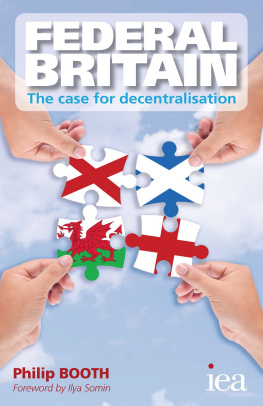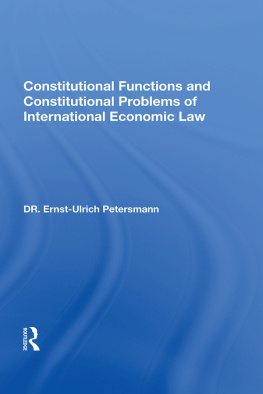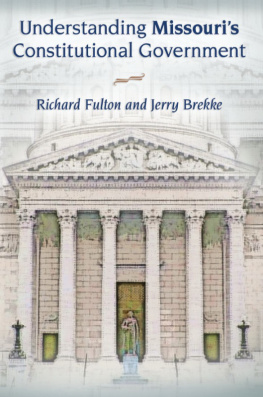First published in Great Britain in 2015 by
The Institute of Economic Affairs
2 Lord North Street
Westminster
London SW1P 3LB
in association with London Publishing Partnership Ltd
www.londonpublishingpartnership.co.uk
The mission of the Institute of Economic Affairs is to improve understanding of the fundamental institutions of a free society by analysing and expounding the role of markets in solving economic and social problems.
Copyright The Institute of Economic Affairs 2015
The moral right of the author has been asserted.
All rights reserved. Without limiting the rights under copyright reserved above, no part of this publication may be reproduced, stored or introduced into a retrieval system, or transmitted, in any form or by any means (electronic, mechanical, photocopying, recording or otherwise), without the prior written permission of both the copyright owner and the publisher of this book.
A CIP catalogue record for this book is available from the British Library.
ISBN 978-0-255-36715-8 (ebk)
Many IEA publications are translated into languages other
than English or are reprinted. Permission to translate or to reprint
should be sought from the Director General at the address above.
Typeset in Kepler by T&T Productions Ltd
www.tandtproductions.com
This publication is based on research that forms part of the Paragon Initiative.
This five-year project will provide a fundamental reassessment of what government should and should not do. It will put every area of government activity under the microscope and analyse the failure of current policies.
The project will put forward clear and considered solutions to the UKs problems. It will also identify the areas of government activity that can be put back into the hands of individuals, families, civil society, local government, charities and markets.
The Paragon Initiative will create a blueprint for a better, freer Britain and provide a clear vision of a new relationship between the state and society.
The author
Philip Booth
Philip Booth is Editorial and Programme Director at the Institute of Economic Affairs and Professor of Finance, Public Policy and Ethics at St Marys University, Twickenham. Previously, he was Professor of Insurance and Risk Management at Cass Business School. He also worked for the Bank of England as an advisor on financial stability issues and has been Associate Dean of Cass Business School. He has written widely, including a number of books, on investment, finance, social insurance and pensions as well as on the relationship between Catholic social teaching and economics. Philip has a BA in economics from the University of Durham and a PhD from City University. He is a Fellow of the Institute of Actuaries and a Fellow of the Royal Statistical Society.
Foreword
Relative to many other states, the United Kingdom over the last century has been a highly successful multinational polity. Even the tragic Troubles of Northern Ireland paled in comparison with the ethnic and religious conflicts that have torn apart so many other nations. Historically, the British have often been sceptical of American and continental European proclivities for trying to solve political problems with formal constitutional arrangements. They have instead usually preferred the more informal British tradition of muddling through under the nations unwritten constitution. Most of the time that tradition has arguably served the UK well.
In recent years, however, the future viability of the UK has been called into question by the growing conflict between relatively left-wing Scots and the more right-of-centre electorate in England. Although independence was defeated in the September 2014 Scottish referendum, secessionist sentiment might well be rekindled in the aftermath of the Conservative Partys surprising victory in the 2015 UK election, which also saw massive gains for the pro-independence Scottish National Party in Scotland. As English and Scottish views on the role of government in society become increasingly divergent, the pressure on the UK political system might well increase, perhaps even to breaking point.
These developments have led many to consider the possibility that Britain might need some more formal system of federalism to survive. Proposals for a more federal and decentralised UK have been advanced on both the left and the right in the hope that they might resolve the seeming impasse in which the nation finds itself. The ultimate resolution of these issues is important not only to the peoples of Britain, but also to many elsewhere. A successful settlement of the UKs constitutional issues might well be a model from which others can learn. It might also create important benefits for Britains partners in the European Union, and its overseas allies, including my own country. Failure might have ripple effects on the European Union and beyond.
Philip Booths important contribution to the debate over Britains constitutional future is both timely and insightful. As he effectively demonstrates, a greater decentralisation of power in Britain might not only reduce the intensity of political conflict, but also strengthen the economy, and offer English, Scots, Welsh and Northern Irish alike a greater range of political choice through foot voting. Britons of all national groups would have enhanced opportunities to live under the policies they prefer by voting with their feet for those jurisdictions that adopt them. As he outlines, foot voters generally have better incentives to make informed and logical decisions than conventional ballot box voters.
Booth also effectively argues that devolution of power works best if coupled with a matching devolution of fiscal responsibility. Local and regional authorities will not have good incentives to adopt effective policies unless they must pay for them out of their own tax revenue. If a local or regional government can force taxpayers elsewhere to pay for its mistakes, it is likely to make more of them. It will also have much weaker incentives to adopt policies that are attractive to taxpaying citizens. By contrast, a government that must raise its own revenue sources has a strong incentive to compete for residents by adopting policies that are both cost-conscious and effective.
The result of such competition and foot voting will not automatically be a small-government, libertarian-oriented polity. Interventionist regions might also prosper in interjurisdictional competition if their higher levels of taxation and regulation create sufficient off-setting benefits to attract residents and investors. The key point is that both left- and right-wing sub-national governments will have to find ways to make themselves more attractive to foot voters.
Few will agree with every single detail of Booths proposal. Ultimately, any successful federal system for Britain will have to be the product of negotiation between the different regions and peoples of the UK. Not even the best and most insightful academics and policy analysts can fully predict the details of such a settlement in advance.
But Philip Booths paper is an outstanding contribution to the discussion of these issues, and deserves careful consideration from those interested in the constitutional future of Britain.
Ilya Somin
Law professor at George Mason University and author of
Democracy and Political Ignorance: Why Smaller Government Is Smarter
October 2015
The views expressed in this monograph are, as in all IEA publications, those of the author and not those of the Institute (which has no corporate view), its managing trustees, Academic Advisory Council members or senior staff. With some exceptions, such as with the publication of lectures, all IEA monographs are blind peer-reviewed by at least two academics or researchers who are experts in the field. Because this publication was written by the Editorial Director, the Chairman of the Academic Advisory Council, Professor Martin Ricketts, was also involved in the review process.





